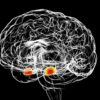At the University of Edinburgh, researchers found that a slow walking pace and problems with memorical recollection may be associated with a double risk of developing dementia.
As publicized in Alzheimers & Dementia, the research also found that patients with motoric cognitive risk (MCR) may also be at a higher risk for developing dementia.
The data of nearly 50,000 people in late adulthood with MCR across 15 studies was examined.
“We propose mechanisms on the relationship between motor and cognitive function and describe a roadmap to validate these hypotheses,” the study reads.
“We systematically searched major electronic databases from inception to August 2021 for original longitudinal cohort studies of adults aged ≥60 years that compared an MCR group to a non-MCR group with any health outcome.”
The criteria for MCR involved the slow pace of walking in comparison to people of a similar age and sex. Memory deficits are also part of the criteria.
According to researchers, people with MCR have a more than double risk of developing dementia. There is also a 76 percent higher risk of cognitive impairment compared to people without MCR.
The mortality risk for people with MCR increased by 49 percent more compared to the non-MCR group.
In spite of the findings, the authors stress the need for further research.


